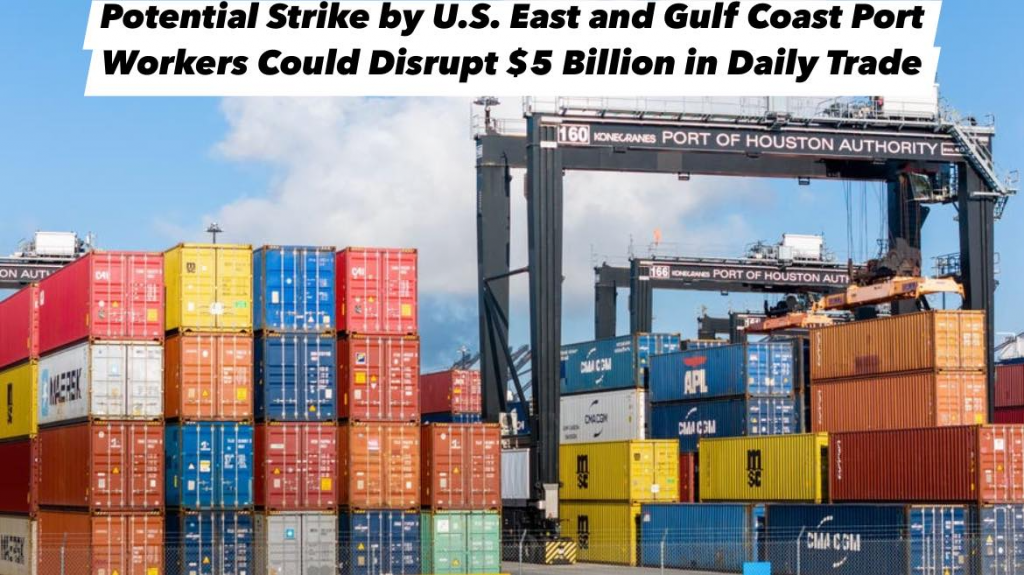Port workers along the U.S. East and Gulf Coasts are poised to strike starting at midnight on Monday, with no further talks scheduled. The strike could halt container traffic from Maine to Texas, impacting major industries and threatening to cost the U.S. economy up to $5 billion daily.
The labor contract between the International Longshoremen’s Association (ILA), representing 45,000 port workers, and the United States Maritime Alliance (USMX), is set to expire Monday night. At the heart of the impasse are disputes over wages, with the union claiming a “half-century of wage subjugation.” If the strike proceeds, it will mark the first coast-wide ILA strike since 1977.
Ports that handle nearly half of the nation’s ocean freight will be affected, disrupting the flow of critical goods such as food and automobiles. While the ILA has stated that military and cruise shipments would not be impacted, the broader implications of the strike could stoke inflation and impact jobs just weeks before the U.S. presidential election.
Industry groups, including the Business Roundtable, have expressed deep concern, warning that a prolonged strike could have devastating effects on businesses, workers, and consumers across the country. They are urging both parties to reach an agreement before the midnight deadline.
While some companies have proactively shifted goods to West Coast ports or imported extra inventory, a long-term strike could cause serious disruptions to the U.S. supply chain. ILA President Harold Daggett has remained firm in his stance, calling for significant wage increases and halts to terminal automation projects, stating: “I’ll cripple you. I will cripple you.”
- Follow or share

